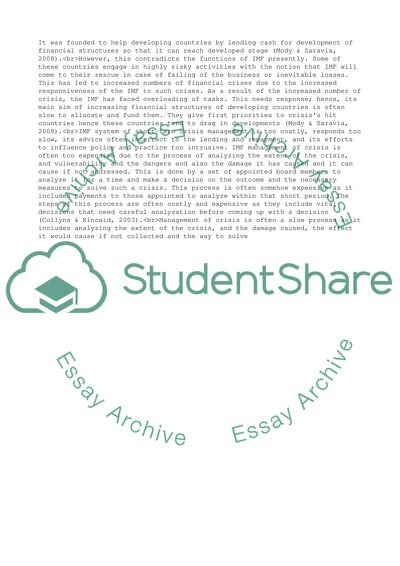Cite this document
(“IMF Case Study Example | Topics and Well Written Essays - 1000 words”, n.d.)
Retrieved from https://studentshare.org/business/1597801-imf
Retrieved from https://studentshare.org/business/1597801-imf
(IMF Case Study Example | Topics and Well Written Essays - 1000 Words)
https://studentshare.org/business/1597801-imf.
https://studentshare.org/business/1597801-imf.
“IMF Case Study Example | Topics and Well Written Essays - 1000 Words”, n.d. https://studentshare.org/business/1597801-imf.


